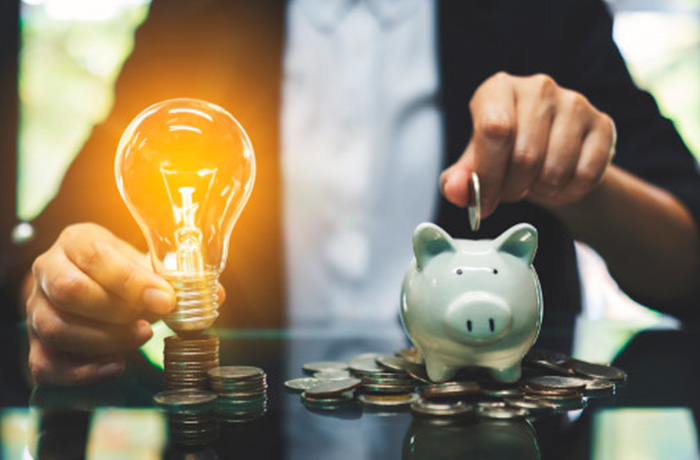Decalogue of tips to achieve greater energy savings during summer
The summer season is just around the corner, and with it, new consumption habits to keep heat at bay making your our day to day at home more enjoyable. To obtain efficient energy use and correct summer energy savings, here at Vía Célere we have developed a series of tips to keep in mind:
- Dual-flow ventilation. Incorporating into homes the double flow ventilation offered by Vía Célere ensures good air quality without needing to open windows, hence preventing heat from the outside coming in. This system allows continuous controlled ventilation through extraction and impulsion, filtering the air and preventing the accumulation of odours and toxic gases. If you do not have this technology, your home should be aired first thing in the morning or at night, avoiding the midday hours when it is hotter.
- Using HVAC alternatives to air conditioning. Ceiling or wall fans, which consume much less energy than air conditioning, should be used as these help to decrease the temperature by 3 to 5 degrees with the movement of air.1. The use of geothermal, energy contained in the subsoil, which is clean, free and, of course, renewable, is complemented at Vía Célere with a distribution system for chilling by means of underfloor heating/cooling using water. Another option that some of our developments have is aerothermal, technology that uses energy from the air to generate refrigeration.
- Use of curtains and blinds. During the hours of greatest exposure to the sun, blinds must be lowered and curtains drawn to prevent the interior temperature from increasing without having to use electricity or air conditioning. In addition, the use of an external awning is very effective against heat, being the home’s first barrier against the sun’s rays and helping to reduce heat by up to 90% depending on the types of awning and their orientation*.
- Take advantage of natural light. In summer there are more hours of light, something that, if we know how to make the most of it, can help us save energy. If you have to turn on the lights, led bulbs or low consumption bulbs, which generate less heat should be used and, in addition, they last longer and use less energy.
- Choosing energy efficient appliances. When buying household appliances, it is important to take into account their consumption, since, for example, an A +++ type refrigerator consumes up to half that of one labelled A. In addition, the good maintenance of these household appliances and programming them at a suitable temperature is key to a moderate use of energy.
- Correct use of air conditioning and thermostat settings. When opting to use air conditioning in cases of extreme heat, it is advisable to maintain a temperature between 24 and 26 °c, trying not to drop below 23 °c in any event.
- Take into account the orientation of the house. A key factor when it comes to avoiding heat and airing our house is knowing its orientation, to lower the blinds in the areas where the sun shines the most and use the coolest spaces in the house.
- Good management of electricity at home. Electrical devices when not in use should be turned off, since many give off heat when plugged in.
- Check the power supply contracted. On many occasions users contract a greater electrical supply than what they really need for their normal consumption. Therefore, it is important to calculate the average consumption and adjust the power supply to what you really need.
- Disconnect appliances and devices when going on vacation. When leaving the house at holiday time, it is advisable to disconnect the fridge or adjust its temperature to the least cold position (for each degree the intensity is lowered up to 6% of energy can be saved) and disconnect all devices on standby, as their consumption can account for 10.7% of all energy consumption for household appliances**.


